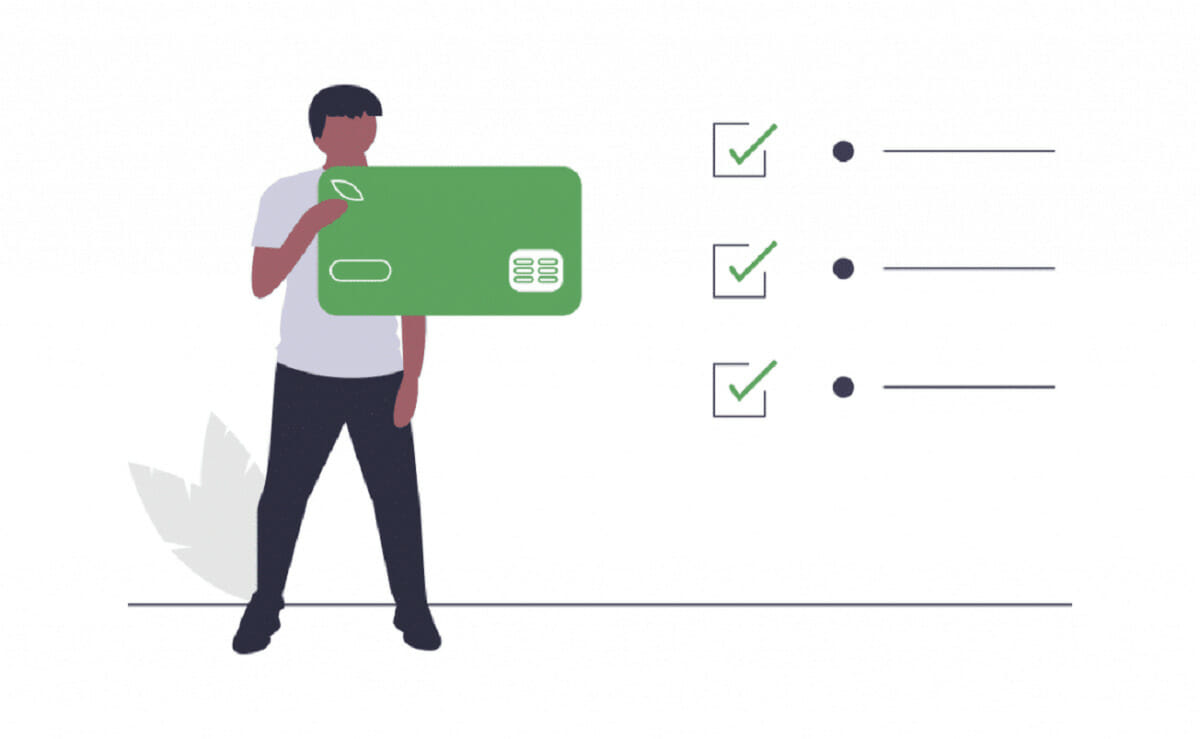Credit cards are great for racking up rewards and points, but you want to ensure you have the right card for your spending style. There are many considerations when picking a card, and depending on your life stage, you may need to pick a new one.
This article will look at several different factors to consider when deciding whether you should get a new credit card.
-
You found a credit card with special sign-up bonuses
One of the best times to look for a new card is when special sign-up bonuses are offered. These introductory bonuses can be worth hundreds of dollars. Often, they come in the form of points or travel miles that you can redeem.
Q2 2022 hedge fund letters, conferences and more
Find A Qualified Financial Advisor
Finding a qualified financial advisor doesn't have to be hard. SmartAsset's free tool matches you with up to 3 fiduciary financial advisors in your area in 5 minutes.
Each advisor has been vetted by SmartAsset and is held to a fiduciary standard to act in your best interests.
If you're ready to be matched with local advisors that can help you achieve your financial goals, get started now.
Usually, these bonuses require the new cardholder to meet a spending goal within the first 30-90 days of opening the card. The goal is to get you to place money on the card so you can build up a balance. During these introductory periods, interest rates are lower than normal too.
-
You don’t earn rewards
Many older credit cards don’t actually offer rewards, so if you’re using a card with no reward system, it’s probably time to switch.
You might also not be earning many rewards. If that’s the case, you should consider switching your card to a new one with better rewards. Evaluate spending and determine if you want cash back, dining, or miles rewards.
-
Annual fees are undercutting your card benefits
If your card has a high annual fee, or the annual fee is eating up a big chunk of your rewards, it might be time to switch to a new credit card.
Some cards, like the American Express Gold Card, have great rewards but also come with high yearly fees. Carefully consider the benefits of a card and whether or not the annual fee will make it worth it.
-
Your current cards have a high APR
One issue with credit cards is that they can have high APR. Currently, the average credit card rate is at its highest since 1996. APR is the amount of interest you get charged every month.
When you carry a balance, this is the amount that gets added to your card balance as interest. If you have a high APR, you’ll pay more interest every month. One way to avoid paying huge amounts of interest is to pick a lower-interest credit card.
If you’re struggling with a high balance on a high APR card, then you can also utilize a credit card balance transfer to help you pay things off. This way, you can move your balance from one card to another (hopefully with a lower rate).
-
Your spending habits have changed
A telltale sign that you need to switch credit cards is if your spending habits have changed. As we grow older, change jobs, or undergo major life changes, our spending habits, naturally, change.
For example, you may have previously used a travel card extensively but now have settled down and utilize more cash back rewards. If you’ve started a business or your company has grown, you may also need a new card.
Remember, your business should be in good standing and with a good reputation and financials before applying for a new business card. In either case, your credit card should match your spending habits, and you should research a card that’s right for you.
-
Your rewards aren’t being used
Most credit cards offer rewards, but if you don’t utilize these rewards, then you might want to switch cards. For example, a business credit card may come with unlimited 2x miles with 75,000 Bonus Miles, but you have to spend a certain amount to receive these bonus miles.
If you’re not frequently purchasing airline tickets, or you aren’t planning on putting purchases on the cards, these types of rewards will go unused, and you’ll end up not being able to reap these benefits.
Times to avoid getting a new card
-
Without doing research first
Don’t just apply for a new card the second you get the chance. It’s important to do your research first. Researching all available options is important because not every card is right for your spending habits. In addition, applying for multiple cards at once can hurt your credit score.
-
After you lose your job or your income drops
Avoid applying for a new card if you recently lost your job or if your business income has decreased significantly in the last couple of months.
When you lose your job, you might need quick cash to pay your bills, but applying for a credit card is still not a good idea. For one, paying your monthly credit card bills may become difficult. Secondly, when applying for a new credit card, you will have to provide your income level.
If you have no income, you’ll likely be declined, but you’ll still take a hit to your credit score for the hard inquiry to your credit report. In this case, it’s better to take the time to find a new job before applying for a new card.
Similarly, if your received business income has decreased, your company may end up struggling with paying off its credit card debt. Make sure you’re always sending out timely invoices for each client or customer to ensure that the status of all payments is being tracked and the monies received. Once your business earnings are back up, you can consider applying for a new card.
-
When you’re applying for a new loan
One of the biggest mistakes you can make when applying for a new credit card is to apply for one at the same time you apply for a large loan. When you apply for new credit, your credit score drops slightly.
Your score can also be impacted by the number of new credit lines you open at the same time. This means that if you intend on applying for a mortgage or a loan for a new car or a home project, you might get an offer with a much higher interest rate than you would otherwise.
Conversely, you should avoid applying for a credit card after applying for a large loan too. This can also be a red flag to creditors that you’re overextending your credit.
Article by Kiara Taylor, Due
About the Author
Kiara Taylor is a financial writer and Research Analyst. She is an expert at risk-based modeling having worked in the finance vertical for the past twenty years. She has a Master's Degree in Finance from Ohio State and has worked at Fifth Third Bank, J.P. Morgan and Citi in emerging markets and equity research.













